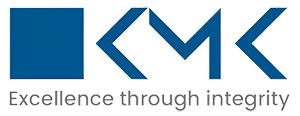From Data Entry to Decision Making: How Automation Is Reshaping Accounting for U.S. Firms in 2025

Introduction
In 2025, U.S. accounting firms are no longer defined by ledgers, calculators, or endless spreadsheets. Today, the industry is being reshaped by intelligent technologies that automate tasks, improve accuracy, and drive strategic insights. From routine data entry to high-level analysis, the role of accountants is evolving—and automation is the engine behind this transformation.
Accounting automation in the USA is not just about convenience. It’s about empowering firms to shift their focus from manual work to meaningful financial decision-making. This blog explores how automation is fundamentally changing accounting workflows, and what U.S. firms must do to stay competitive.
The Shift from Data Entry to Decision Making
Traditionally, much of a finance team’s time was consumed by repetitive tasks:
- Manually keying in invoices
- Reconciling bank statements
- Processing payroll
- Sorting through receipts
Today, automation in accounting processes has redefined this landscape. With tools like QuickBooks Online, Xero, and NetSuite powered by AI and machine learning, firms can:
- Automate reconciliations
- Auto-categorize expenses
- Capture and post invoices via OCR
- Generate real-time dashboards
The result? Accountants are moving up the value chain—from data entry clerks to financial strategists.
Eliminating Manual Errors with Automated Bookkeeping Systems
Manual entry isn’t just inefficient—it’s risky. One mistyped digit can lead to days of backtracking and skewed financials. Automated bookkeeping systems reduce this risk by digitizing data capture and syncing directly with bank feeds, credit cards, and payment platforms.
Key Benefits:
- Fewer data entry errors
- Faster monthly close
- Streamlined AP/AR workflows
- Improved audit trails and version control
For U.S. accounting firms, this automation not only saves time but also ensures compliance with strict IRS documentation standards.
Real-Time Financial Insights for Smarter Decisions
Today’s business leaders demand real-time financial insights, not monthly summaries. Cloud-based accounting platforms offer live dashboards that pull in data from multiple sources—giving CFOs and decision-makers an up-to-the-minute view of cash flow, budgets, and performance metrics.
Automation enables:
- Rolling forecasts updated automatically
- Instant drill-down into transaction-level details
- Live alerts for anomalies or cash shortages
- Integrated scenario modeling and what-if analysis
For U.S. accounting firms serving clients across sectors, providing this level of visibility builds trust and reinforces the accountant’s role as a strategic partner—not just a number cruncher.
Enhancing Compliance with U.S. Regulations
Whether you’re preparing for IRS audits or aligning with GAAP, accounting automation in the USA makes compliance smoother and more reliable.
Automated systems:
- Track changes and maintain full audit logs
- Timestamp every user action
- Flag unusual transactions or duplicate entries
- Support automated 1099 generation and W-2 reporting
Modern accounting tools are designed to handle the specific reporting requirements of U.S. regulators. By embedding compliance into everyday processes, automation helps firms avoid penalties, reduce audit stress, and maintain data integrity.
Empowering Remote and Outsourced Finance Teams
Automation is a game-changer for firms with distributed or offshore accounting teams. By enabling real-time collaboration through shared dashboards and integrated workflows, automation in accounting processes ensures that teams can work effectively, regardless of geography.
At KMK, we’ve helped dozens of U.S. accounting firms integrate cloud-based tools that:
- Allow secure document sharing and role-based access
- Trigger automated notifications for approvals or deadlines
- Eliminate file version confusion across time zones
- Support multi-entity and multi-currency accounting
These capabilities allow onshore and offshore teams to operate as a single, synchronized unit.
Freeing Up Time for Advisory and Strategic Services
With routine tasks handled by automated bookkeeping systems, firms can reallocate their most valuable resource—time. This opens the door for higher-margin services such as:
- Financial planning and analysis
- Tax strategy and risk management
- Valuations and due diligence support
- Budget modeling for investors and boards
For clients, this means more meaningful conversations about growth, forecasting, and long-term planning. For U.S. accounting firms, it’s a pathway to growth, retention, and differentiation.
The KMK Approach: Automation-First Outsourced Finance
At KMK, we understand that the future of accounting is automation-first. Our offshore delivery model is fully integrated with automated bookkeeping systems and real-time cloud accounting platforms—tailored for the needs of U.S. accounting firms and CFOs.
What we offer:
- Implementation of cloud-based accounting tools
- Setup of automated AP/AR, expense, and close processes
- Real-time dashboard creation for client insights
- Training and SOPs for your in-house or hybrid team
- U.S.-compliance support aligned with IRS, GAAP, and audit standards
Whether you’re looking to modernize internal operations or scale your outsourced finance function, KMK delivers the automation-powered precision you need.
Conclusion: From Reactive to Strategic—The Automation Advantage
In 2025, accounting isn’t just about recording what happened. It’s about guiding what happens next. Accounting automation in the USA is helping firms shed outdated routines and embrace a future where insight, not input, defines value. By investing in automation in accounting processes, firms can:
- Cut costs and increase productivity
- Improve compliance and accuracy
- Empower smarter, faster decisions
- Position themselves as trusted advisors
Still relying on spreadsheets and manual entry? That’s where KMK comes in. We help U.S. firms implement the right systems, train their teams, and unlock the full potential of automation—turning accounting from a cost center into a growth driver.
 Dev Kothari, a seasoned leader at KMK, heads the Special Teams, where he leverages his extensive expertise in managing large-scale accounting and tax return processing for U.S.-based clients. With a keen eye for workflow optimization and stakeholder collaboration, Dev drives exceptional efficiency and quality in high-volume project delivery. As a dual-qualified CPA (AICPA, Arizona) and Chartered Accountant (ICAI), Dev’s blend of strategic insight and technical prowess positions him as a key asset in ensuring KMK’s clients consistently achieve their financial goals.
Dev Kothari, a seasoned leader at KMK, heads the Special Teams, where he leverages his extensive expertise in managing large-scale accounting and tax return processing for U.S.-based clients. With a keen eye for workflow optimization and stakeholder collaboration, Dev drives exceptional efficiency and quality in high-volume project delivery. As a dual-qualified CPA (AICPA, Arizona) and Chartered Accountant (ICAI), Dev’s blend of strategic insight and technical prowess positions him as a key asset in ensuring KMK’s clients consistently achieve their financial goals.
Let’s Take Our Conversation Ahead
KMK is a top outsourced accounting and tax service provider. We offer end-to-end accounting and tax services for small to mid-sized businesses, with a team of 875+ professionals, including certified public, chartered, and staff accountants.
USA:
651 N Broad St Suite 205, Middletown, DE 19709, USA
Phone: 310-362-2511
India:
300, Sankalp Square-3B
Sindhu Bhavan Marg,
Ahmedabad, Gujarat 380058
For Career: 91-98240-42996
Developed by Bluele | Copyright © 2026 | KMK Ventures Private Limited. | All Rights Reserved


